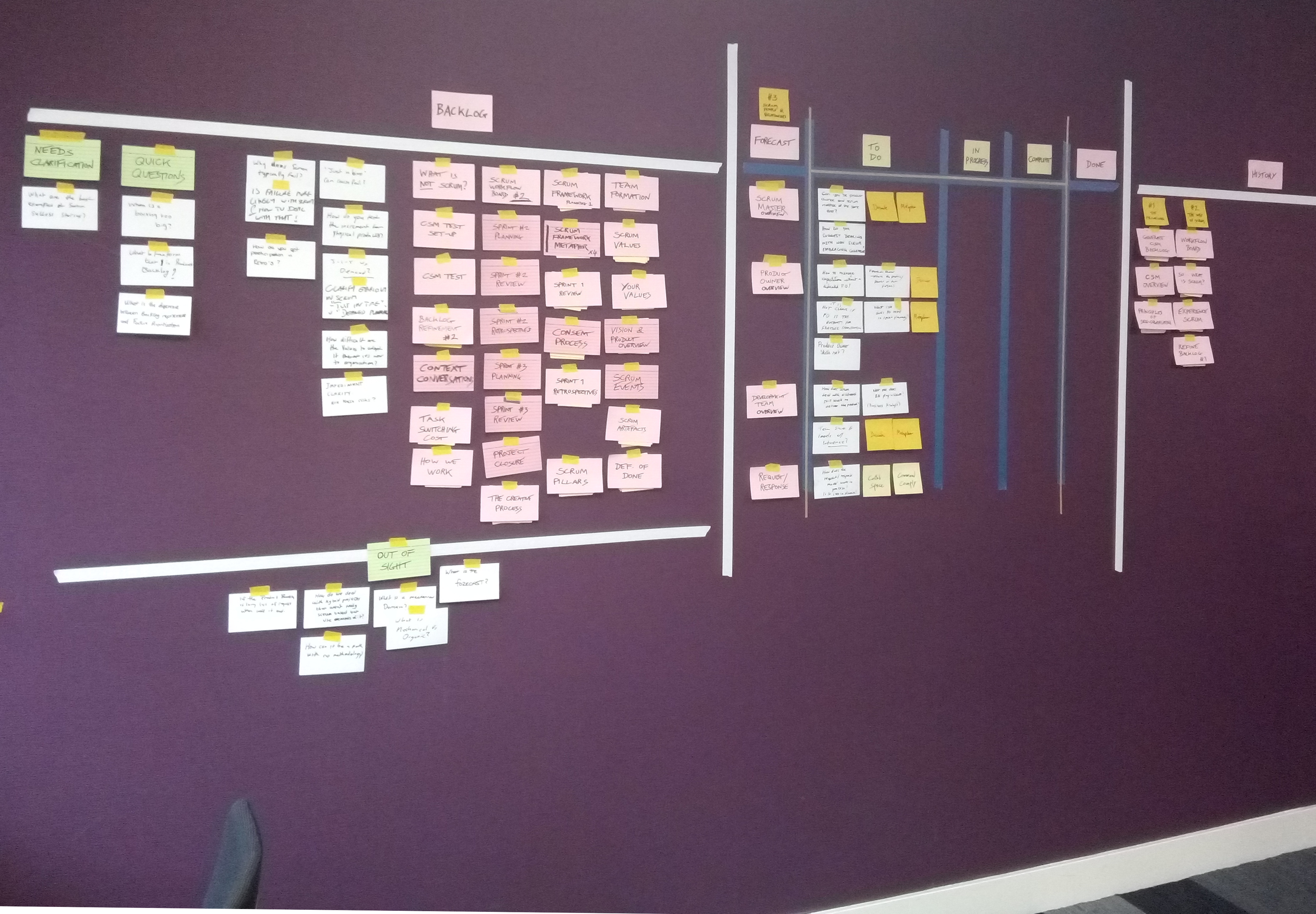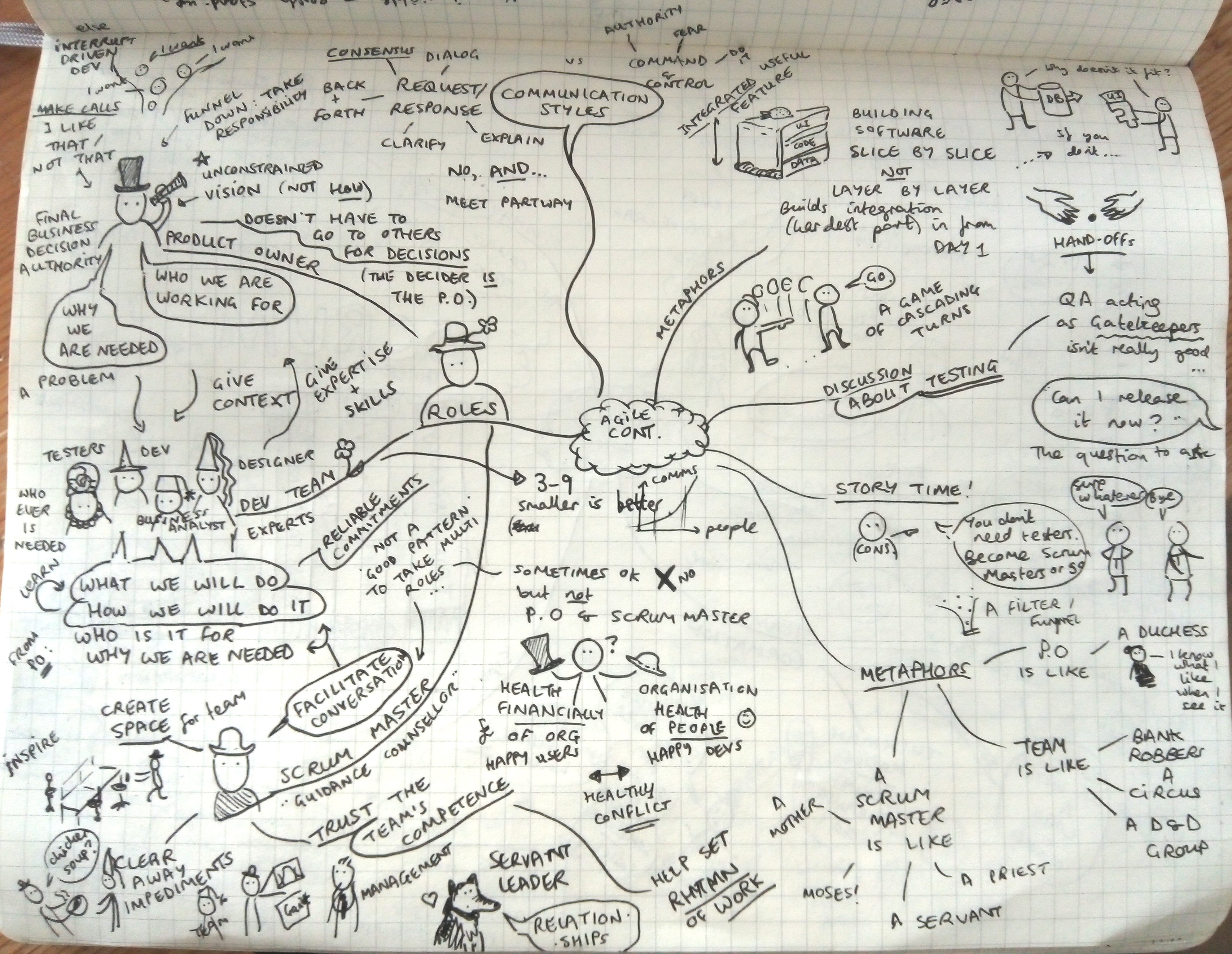Agile Workshop
I recently attended a Certified Scrum Master course taught by Tobias Mayer of Adventures With Agile. I really enjoyed the course and the style in which it was taught. There was no death by Powerpoint! Tobias actually constructed a board on the wall with columns to keep track of the tasks comprising the course, and we added extra task cards for further discussion and questions as we went along.
 Here's what the board looked like near the start of the two day course.
Here's what the board looked like near the start of the two day course.
We held 'Sprints' of an hour or so at a time, diving into aspects of Agile and then reviewing how it went, to improve our group process. Sometimes the teacher would stand and talk about a concept for a while, but mostly the course was interactive, especially during the second day where we broke out into groups for longer sessions.
The exercises we did included 'Point and Go': a game where players stand in a circle and have to
- Point to someone else whose place you want to take
- Wait for them to say "Go"
- Start moving forwards to them
- Before you reach them, they have to find another place to go (and the cycle continues!) This was unexpectedly hard! It was a metaphor for how difficult it can be to break out of an established pattern of behaviour at work. Even once we got into a rhythm, if things sped up or someone panicked, our orderly pattern fell apart.
Another exercise I enjoyed was coming up with different metaphors for Scrum. We broke out into groups and thought up some different ideas - I was impressed by the variety and how each of them fitted different parts of what Scrum can look like. Some of my favourites were:
- a garden growing and changing over time
- a cocktail bar developing new drinks
- a stand-up comedian working on their routine
- a graffiti crew making a work of art for their neighbourhood
- Jurassic Park (this was mine!)
 A mindmap from my notes about the different Scrum roles
A mindmap from my notes about the different Scrum roles
Following the training, I'm a Certified Scrum Master. There have been some intelligent criticisms of this certification process, including by some of its founders. The fact that there is a certification exam seems to somewhat devalue the training experience itself. I didn't really need to complete the training to do the certification exam - its questions are purely based on the Scrum Guide and a few on the Agile Manifesto. How well can a multiple-choice test about a short document really hope to measure someone's competence in such a fuzzy relationship-centred domain as taking on the role of a Scrum Master? It's always going to fall short, I think. I've acted as a Scrum Master for several years already without the certification, so I was interested to see what it covered and didn't touch on.
I passed the exam. But the things that will really stay with me are the advice of the trainer and the discussions I had during the course, especially with others whose companies are also on the path to adopting more Agile practices. I certainly recommend Tobias as a teacher: his creative exercises and the way he presented the course helped grow my understanding and confidence in the role of Scrum Master. I'd like to attend his Scrum Master Clinic - I think it will really help to have that ongoing mentoring and peer advice.